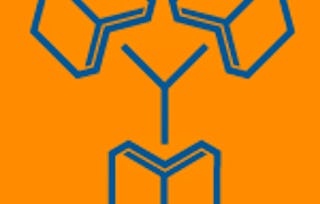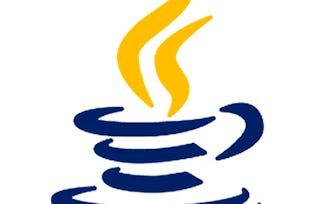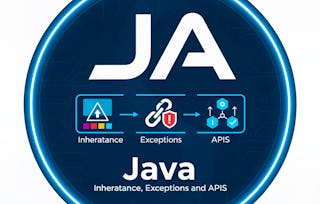Object-Oriented Hierarchies in Java is the third of a series of courses in the Core Java Specialization. The Core Java Specialization is part of a series of programming specializations, derived from LearnQuest's private Java Bootcamps, designed to provide the skill set necessary to be hired as an IT developer using Java in many corporate environments.

Object-Oriented Hierarchies in Java

Object-Oriented Hierarchies in Java
This course is part of Core Java Specialization


Instructors: Evan Bergman
21,915 already enrolled
Included with
213 reviews
Recommended experience
Skills you'll gain
Details to know

Add to your LinkedIn profile
13 assignments
See how employees at top companies are mastering in-demand skills

Build your subject-matter expertise
- Learn new concepts from industry experts
- Gain a foundational understanding of a subject or tool
- Develop job-relevant skills with hands-on projects
- Earn a shareable career certificate

There are 6 modules in this course
In this video, we will introduce you to this course and explain what you will learn.
What's included
1 video2 readings
This module foreshadows the entire course, covering O-O Relationships, Inheritance, Polymorphism, Interfaces, Aggregation, and Design Guidelines. The following modules revisit selected topics in more detail.
What's included
11 videos5 readings2 assignments2 ungraded labs1 plugin
This module goes into more detail on implementing class inheritance in Java, including overriding methods, invoking overridden parent methods using super, and more.
What's included
13 videos2 readings4 assignments3 ungraded labs
This module discusses Abstract classes, including what they are; where you might use them; how to implement them; and concludes with discussion of casting, which is the technique of taking a reference of a given type, and asserting a different type.
What's included
11 videos2 readings2 assignments1 ungraded lab
Interfaces are the key to polymorphism in Java, since Java requires inheritance in order to implement polymorphism, and classes are limited to the single inheritance graph. This module goes into more detail on interfaces and polymorphism, and includes discussion of Java 8 features, such as default and static methods, Functional Interfaces, Java Lambdas, and Method References.
What's included
15 videos4 readings4 assignments1 ungraded lab
Just as the first module served to foreshadow the entire content of this course, this module serves as a brief capstone, with a conceptual discussion of polymorphism mechanisms in Java, and practices for ensuring that polymorphism is an option in your programs.
What's included
2 videos3 readings1 assignment1 ungraded lab
Earn a career certificate
Add this credential to your LinkedIn profile, resume, or CV. Share it on social media and in your performance review.
Instructors


Offered by
Explore more from Software Development
 Status: Free Trial
Status: Free Trial
Birla Institute of Technology & Science, Pilani
 Status: Free Trial
Status: Free Trial Status: Free Trial
Status: Free Trial
Why people choose Coursera for their career

Felipe M.

Jennifer J.

Larry W.

Chaitanya A.
Learner reviews
- 5 stars
77.46%
- 4 stars
17.84%
- 3 stars
3.75%
- 2 stars
0.46%
- 1 star
0.46%
Showing 3 of 213
Reviewed on Feb 26, 2022
very good coursethanks a lot to everybody behindgreat
Reviewed on Jan 6, 2022
golden knowledge in this course specially on functional interfaces (lambdas expression)
Reviewed on Mar 22, 2022
it is great course. I will come back to it, i am now taking breakthank you

Open new doors with Coursera Plus
Unlimited access to 10,000+ world-class courses, hands-on projects, and job-ready certificate programs - all included in your subscription
Advance your career with an online degree
Earn a degree from world-class universities - 100% online
Join over 3,400 global companies that choose Coursera for Business
Upskill your employees to excel in the digital economy
Frequently asked questions
To access the course materials, assignments and to earn a Certificate, you will need to purchase the Certificate experience when you enroll in a course. You can try a Free Trial instead, or apply for Financial Aid. The course may offer 'Full Course, No Certificate' instead. This option lets you see all course materials, submit required assessments, and get a final grade. This also means that you will not be able to purchase a Certificate experience.
When you enroll in the course, you get access to all of the courses in the Specialization, and you earn a certificate when you complete the work. Your electronic Certificate will be added to your Accomplishments page - from there, you can print your Certificate or add it to your LinkedIn profile.
Yes. In select learning programs, you can apply for financial aid or a scholarship if you can’t afford the enrollment fee. If fin aid or scholarship is available for your learning program selection, you’ll find a link to apply on the description page.
More questions
Financial aid available,

